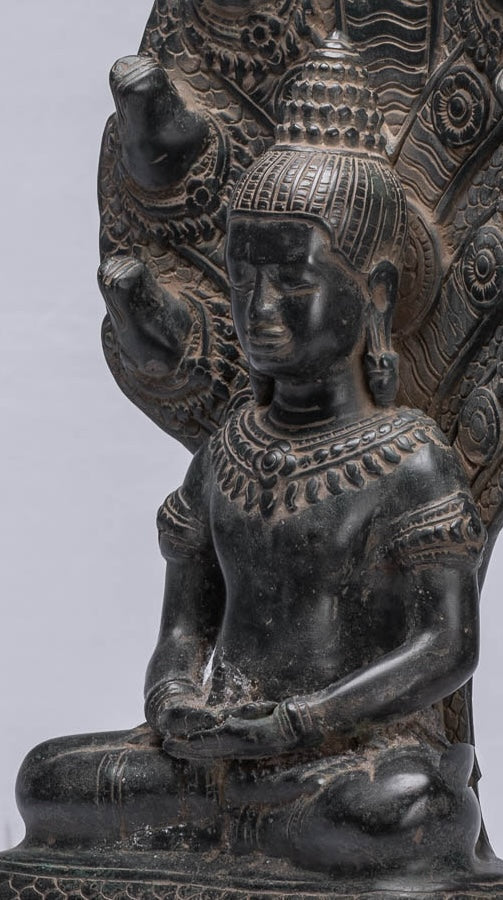
Illuminating the Core: The Three Main Beliefs of Buddhism
Introduction
Buddhism, a spiritual tradition that traces its roots to the teachings of Siddhartha Gautama, the Buddha, is characterized by its profound insights into the nature of existence and the path to liberation. At the core of Buddhism lie three fundamental beliefs that encapsulate the essence of the Buddha's enlightenment.
In this comprehensive blog post, we delve into these three main beliefs, exploring their significance, impact, and how they serve as guiding principles for practitioners on the noble path.
1. The Four Noble Truths
The foundation of Buddhist philosophy rests upon the Four Noble Truths, articulated by the Buddha in his first sermon after attaining enlightenment. These truths form the bedrock of understanding the nature of existence and provide a roadmap for transcending suffering:
- Dukkha (Suffering): The acknowledgment that suffering is an inherent part of life. This includes physical and mental suffering, as well as the unsatisfactory nature of all conditioned phenomena.
- Samudaya (Cause of Suffering): Identifying craving (tanha) and attachment as the root causes of suffering. Craving manifests as desire, clinging, and aversion, leading to an endless cycle of dissatisfaction.
- Nirodha (Cessation of Suffering): Realizing that the cessation of craving leads to the end of suffering. Liberation from suffering is attainable through the eradication of its underlying causes.
- Magga (Path to the End of Suffering): Propounding the Eightfold Path as the transformative journey toward liberation. This path guides practitioners in cultivating wisdom, ethical conduct, and mental discipline.
2. Impermanence (Anicca)
Central to Buddhist thought is the concept of impermanence, denoted by the term "Anicca." This belief underscores the transient and ever-changing nature of all phenomena. According to Buddhist understanding, nothing in the conditioned world possesses permanent, unchanging substance. All things arise, exist for a time, and eventually pass away. Contemplating impermanence is pivotal in loosening attachments, fostering acceptance, and recognizing the impermanence not only of external phenomena but also of one's own experiences and emotions.
3. No-Self (Anatta)
The doctrine of no-self, or "Anatta" in Pali, challenges the notion of a permanent, unchanging self or soul. The Buddha taught that there is no enduring, independent self-entity within the five aggregates (form, feeling, perception, mental formations, and consciousness) that constitute an individual. The recognition of no-self is liberating, as it dismantles the illusion of a fixed identity, leading to a profound shift in perspective. This belief encourages practitioners to see themselves and others with greater compassion, understanding the interconnectedness of all sentient beings.
The Interconnected Nature of the Three Beliefs
These three main beliefs in Buddhism—The Four Noble Truths, Impermanence, and No-Self—are interconnected and mutually reinforcing. The Four Noble Truths provide the framework for understanding suffering and the path to liberation. Impermanence is an inherent aspect of suffering, as clinging to what is impermanent leads to dissatisfaction. The doctrine of no-self challenges the very core of what causes suffering, emphasizing the interdependence of all phenomena.
Application of the Three Beliefs in Practice
Understanding the three main beliefs in Buddhism is not a theoretical exercise but a practical guide for navigating the complexities of life. Practitioners incorporate these beliefs into their daily lives through mindfulness, meditation, and ethical conduct. The acknowledgment of impermanence fosters gratitude for the present moment, while the recognition of no-self encourages a sense of interconnectedness and compassion toward others.
Contemporary Relevance
In a rapidly changing world, the three main beliefs of Buddhism continue to offer profound insights and practical guidance. The wisdom embedded in these beliefs is relevant for individuals seeking a path to inner peace, resilience in the face of life's challenges, and a deeper understanding of the nature of existence.
Conclusion
The three main beliefs of Buddhism form a tapestry of wisdom that has withstood the test of time. Rooted in the teachings of the Buddha, these beliefs provide a transformative framework for understanding suffering, cultivating mindfulness, and realizing the path to liberation.
As we explore the Four Noble Truths, Impermanence, and No-Self, we encounter not only a philosophical foundation but a practical guide for living a life imbued with compassion, wisdom, and a profound sense of interconnectedness.
The journey on the noble path is an invitation to embrace these beliefs, recognizing their timeless relevance and the potential for profound transformation they hold for those who embark on the journey of self-discovery and awakening.


